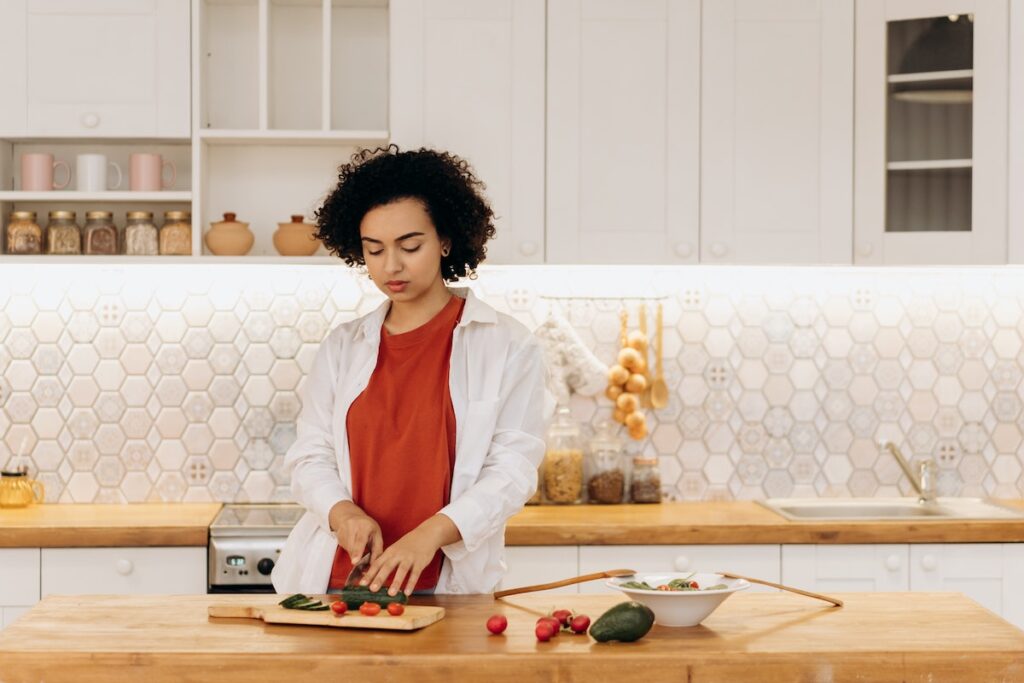How I use nutritional therapy to manage my endometriosis pain
The past year has highlighted many people’s health conditions, and their quests to find alternative, holistic and naturopathic practises to help ease the associated pain.

Earlier this year, a report revealed that there hasn’t been any improvement in diagnosis or care for endometriosis sufferers – a common condition for people with female reproductive organs – with 58% of people visiting their GP more than 10 times before diagnosis. Based on those figures, it’s understandable that Google searches for ‘endometriosis diet’ are in the hundreds every month.
With currently no definitive cause or cure, treatment for endometriosis pain tends to revolve around dietary and lifestyle considerations. One cause theorised by the medical community is that endometriosis could be triggered by hormonal imbalances, due to a lack of functioning or imbalance in the liver itself. The liver’s responsibility is detoxification, and if it’s unable to perform its job correctly in filtering out old estrogen, in particular, it can lead to a build-up of the hormone.
People with endometriosis often suffer from irritable bowel syndrome (IBS), and early studies have shown that gut dysbiosis (bacterial imbalance) is linked to the onset of IBS. Dysbiosis can potentially cause inflammation leading to damaged cells and disrupted estrogen production. There is also evidence to suggest that gut imbalance can influence the faulty immune response in endometriosis.
Jaxx Houghton knows all too well the pain and discomfort of endometriosis, and it wasn’t until two hospital admissions in one year that left her no further forward with long-term relief, that she took a new path towards naturopathic remedies.
“I have spent countless nights in hospital, attached to a cocktail of painkillers; and I have had numerous different hormones prescribed to help manage my endometriosis. However, nothing the medical profession offered me has ever managed to provide any long-term relief.
“It wasn’t until I was admitted to hospital twice in the same year that I started to look at alternatives to try and manage my condition more effectively. I started to research how the food you eat affects your health in both positive and negative ways.
“It was at this point that I realised the huge potential to change my life through being more conscientious with my meal choices.”
“Given the importance of gut health, including the detoxification of hormones through the liver, it makes sense to investigate how improving our gut health could help to manage the symptoms of endometriosis,” says nutritional therapist Sonal Shah, who recommends green tea, cinnamon, ginger and turmeric to fight inflammation.
“Cruciferous vegetables like broccoli, kale, and Swiss chard contain magnesium, along with a compound called indole-3-carbinol that assists the body in healthy oestrogen metabolism. Furthermore, many of these foods (also beans and pulses) are rich in fibre, which can all help to restore hormonal imbalance.”
Anti-inflammatory foods
Jaxx continues: “I started to reduce the amount of processed food that I was consuming (a bad habit that I had fallen into during my uni days and never really got out of due to the amount of time cooking from scratch involved).”
Processed foods contain a lot of sugar which can cause an imbalance in gut bacteria. High sugar diets cause the good bacteria in the gut to decrease, which leads to sugar cravings, and in turn, can lead to higher consumption of sugar. As we know, endometriosis is a chronic, inflammatory condition, so following a Mediterranean-style diet – known for its anti-inflammatory properties – is generally advised.
“This would mean eating oily fish for their omega-3 content, or seeds, nuts and avocados, olive oil, colourful foods like dark berries, carrots, sweet potatoes, and leafy vegetables,” says Sonal. “They provide vitamins and minerals that help lower inflammation and strengthen our immune system.
Plant-based diets
Jaxx says that since ditching dairy and processed products, the difference in her symptoms has been ‘phenomenal’. She says, “Wholefoods and a new love for juicing became part of my routine. I started getting more organised with in-advance meal prep. I also decided to ditch all animal products from my diet and follow a plant-based diet, which I have been following now for about five years (previously I was vegetarian).
“While I still have flare-ups, they are less frequent and the amount of time that I spend in excruciating pain, unable to leave the house, has been reduced significantly. This is all thanks to following a wholesome, plant-based diet with very little processed food. I know this to be true because if I over-indulge in the often-processed vegan food that is popping up everywhere now, I suffer a lot afterwards as my endo symptoms return with a vengeance.
“I only wish I had learnt about the amazing benefits of a wholesome, plant-based diet many years ago.”
If you struggle with painful symptoms of female hormonal imbalance and are looking for natural practises to help manage them, you can reach out to a nutrition professional in your area, or one who offers online support.
If you are planning to change your diet as a form of treatment, it’s important to do so under the guise of a nutrition professional and your GP.
Article updated 13/02/23

Find a nutritionist dealing with Women's nutrition
All nutrition professionals are verified


